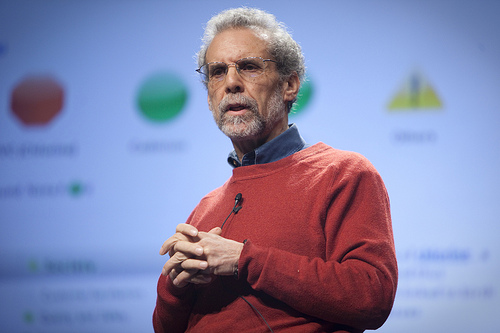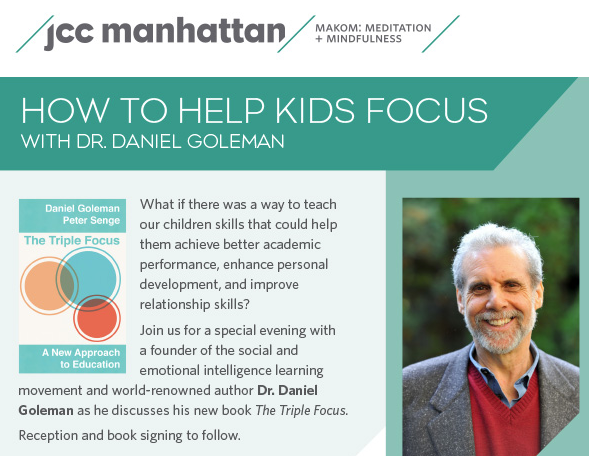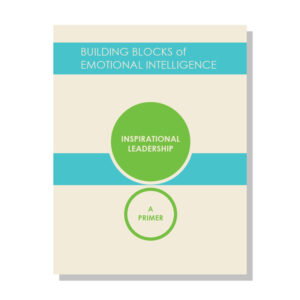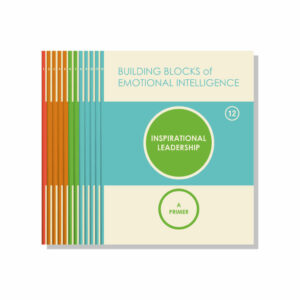
This year we reached a record number of downloads of our podcasts. Thank you! We’re glad you find the content useful. We went back to re-listen to some of our most popular posts. It looks like the concept of focus and attention training were of most interest to listeners. Here’s a recap of the 14 Favorite More Than Sound Podcasts of 2014.
#14 Daniel Goleman talks about Focus on Bloomberg.edu
Dr. Goleman spoke with Jane Williams about the importance of teaching kids cognitive control, the pros and cons of mind wandering, and how to effectively manage distractions.
Listen to the podcast or the complete interview here.
#13 George Kohlrieser’s TedTalk on Negotiation
In this episode, we heard an excerpt from a TEDx talk given by hostage negotiator and IMD professor of leadership George Kohlrieser. As he tells it, successful negotiation, no matter how high the stakes, comes down to bonding. And it’s not only others who have the ability to take us hostage – sometimes we can do that to ourselves.
Listen to the podcast or the complete presentation here.
#12 Common Hiring Mistakes
Claudio Fernández-Aráoz spoke with Daniel Goleman for the video series Leadership: A Master Class. This excerpt of the conversation focuses on some common mistakes employers make while searching for the right candidate.
Listen to the podcast or watch the full discussion here.
#11 The Teenaged Brain
This is an excerpt from Dr. Daniel Siegel’s appearance on Iowa Public Radio’s River to River. He spoke with host Ben Kieffer about the misinformation around “bizarre teenage behavior.”
Listen to the podcast or the complete interview here.
#10 Why The Rich Care Less
Daniel Goleman spoke with Michael Brooks from the Majority Report on why inequality hurts empathy, the emotional impact of wealth and poverty and what we can do to create a more attentive and empathic society.
Listen to the podcast or the full discussion here.
#9 Teach Systems Awareness in Schools
Daniel Goleman spoke with Peter Senge, who pioneered bringing systems thinking into organizations, about its introduction to schools. You can read more about this concept in their book The Triple Focus: A New Approach to Education.
#8 Failure is Essential for Success
Many of these episodes explore concepts and tools that are important ingredients of success. So you might be surprised to hear that this one is devoted almost entirely to failure. But to Bill George, failure is an essential ingredient itself, as you’ll hear in this excerpt from Daniel Goleman’s series Leadership: A Master Class.
Listen to the podcast or watch the full discussion here.
#7 Master the Leadership Styles
Daniel Goleman has introduced 6 different leadership styles that can be used to get results. In this episode, he talks about how leaders can’t rely on just one or even two, but must become proficient in as many as they can. Together, the styles become a set of tools the most effective leaders can use in any situation.
#6 Creativity in the Workplace
Daniel Goleman and Teresa Amabile discuss some aspects of work life that are necessities for a company that depends on creativity.
Listen to the podcast or watch their entire discussion here.
#5 High Performance Leadership
Daniel Goleman spoke with George Kohlrieser for IMD’s Wednesday Webcast. The two discussed the role of attention in high performance leadership.
Listen to the excerpt or the complete discussion here.
#4 Don’t Write Off the Coaching Leadership Style
The coaching leadership style is the least used out of the six approaches. Yet it’s a style that can have a very positive impact on employee performance and bottom-line results.
#3 The Triple Focus: A New Approach to Education
Daniel Goleman and Peter Senge discuss the three types of focus that should be included in classrooms: self awareness, empathy, and an understanding of our relationship with the world around us.
#2 Daniel Goleman Talks about Focus with Diane Rehm
Dr. Goleman spoke with Diane Rehm on what the latest science tells us and how we can sharpen our focus and thrive.
Listen to an excerpt or the full interview.
#1 Focus: The Hidden Driver of Excellence
Daniel Goleman spoke in-depth with KQED about why the ability to focus is the key factor in achieving success – more than IQ or social background. He also discussed how we can cultivate different types of attentiveness, from a narrow focus that shuts out the world to the “open awareness” that is receptive to seemingly unrelated ideas.
Listen to an excerpt or the full interview.
What is Mindfulness?
Stay tuned for details about our new podcast series launching in 2015: What is Mindfulness? More Than Sound’s Hanuman Goleman talks with a variety of mindfulness practitioners, teachers and scholars about the definition of mindfulness.








